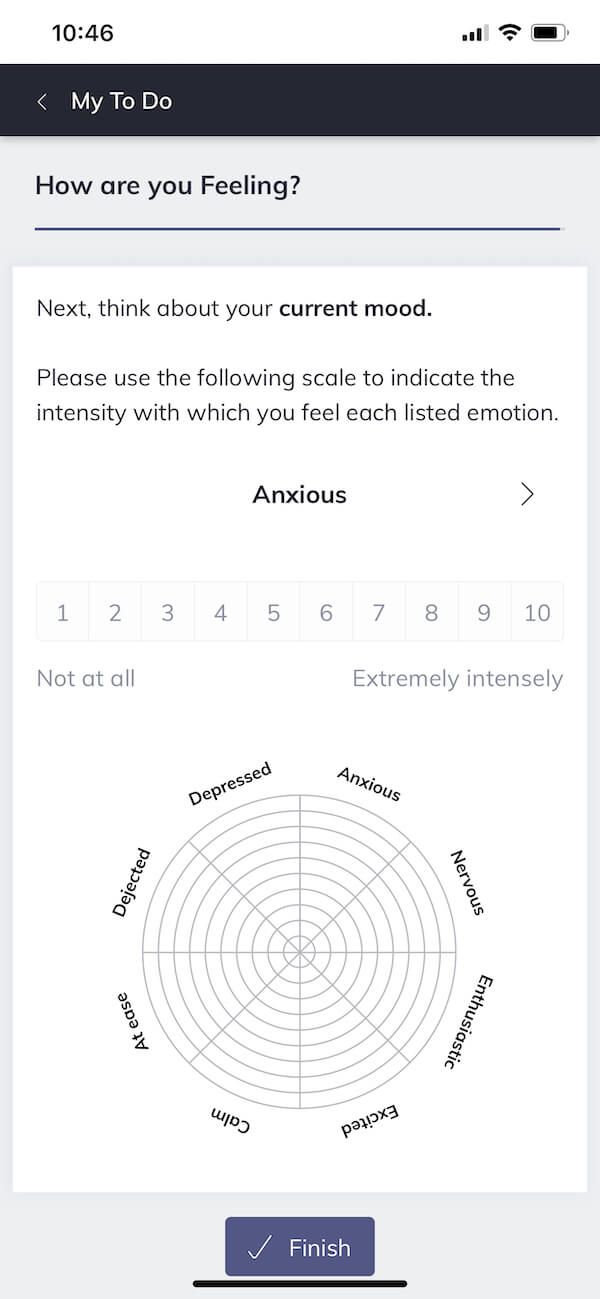

Assessment tools remain a cornerstone of many professions centering around the human mind.
Typically, these assessments invite clients to respond to questions about their mental state and subjective experiences.
Psychologists and therapists depend on these tools to make decisions about the best course of treatment for clients seeking support for their mental health. Therefore, it’s worth taking a little time to explore their variations and how to use them most effectively.
In this article, we’ll explore some of the most commonly used and reliable mental health assessments, as well as their applications at different stages of the therapeutic process. We’ll also walk through some ways you can automate and simplify the administration of these assessments.
Before you continue, we thought you might like to download our three Positive Psychology Exercises for free. These science-based exercises explore fundamental aspects of positive psychology, including strengths, values, and self-compassion, and will give you the tools to enhance the wellbeing of your clients, students, or employees.
Whether it’s a pop psychology quiz online or a validated assessment by a therapist, psychological assessments share one thing in common.
They all function as
“a systematic procedure for comparing the behavior of two or more persons.”
Cronbach, 1949, p. 21
In recent years, scientists have begun making distinctions between psychological tests versus assessments.
While tests are typically thought of as pen-and-paper or computer-based tools for considering differences between people, the term ‘assessment’ acknowledges the wide variety of other approaches a psychologist may use to evaluate these differences. Examples of such approaches include interviews, observations, and recording physiological functions (Goldstein, Allen, & DeLuca, 2019).
To begin, here are three examples of mental health tests commonly used among mental health practitioners.
First published in 1989, the MMPI-2 is the world’s most widely used psychometric test for measuring mental health ailments that feature as forms of psychopathology (Rogers, Robinson, & Jackson, 2016).
The scale features 567 true–false statements, which assess 10 clinical sub-scales (Butcher, Dahlstrom, Graham, Tellegen, & Kaemmer, 1989):
In addition to these 10 primary clinical scales, the MMPI-2 also contains three sub-scales to detect lying, defensiveness, and inconsistent responses.
It also features many additional content scales assessing specific cognitions, behaviors, physical experiences, and motivations, such as self-doubt, competitive drive, and gastrointestinal issues.
If you’re interested in administering this assessment yourself, you can order a copy of the test from the Pearson Assessments website.
Another commonly used mental health assessment is the Beck Anxiety Inventory. This inventory is a brief self-report test used to assess the severity of symptoms of anxiety. It includes detailed scoring to help practitioners identify whether clients’ presenting symptoms of anxiety are within a normal range or severe and debilitating.
The scale comprises 21 common symptoms of anxiety. Examples include:
Respondents indicate the frequency with which each symptom has bothered them for the past month on a 4-point scale, where 0 is ‘not at all,’ and 3 is ‘severely – it bothered me a lot.’
You can access a copy of the test for free from the Great Plains Health website.
Finally, a standard complement to the Beck Anxiety Inventory is the Beck Depression Inventory. Again, this inventory consists of 21 items and contains detailed scoring information to indicate whether symptoms are in a normal range or severe.
Respondents complete each item of the scale by selecting the statement that best reflects their current emotional state. For example, the first item and accompanying scoring are as follows:
If you’re interested, the Beck Depression Inventory with scoring information is freely available to download.
Regardless of which test you use, each can form part of a holistic mental assessment for clients that guides the design of subsequent therapeutic interventions.
To illustrate, consider this sample interpretive report following the administration of the MMPI-2 (Pearson Education, 2014).
The assessment results for this example patient, Karen, point toward a likely diagnosis of schizophrenia or major affective disorder as well as potential challenges in the therapeutic process. Namely, several of her responses suggest that she may possess little faith in her ability to improve her mental health and a lack of trust that may impact her relationship with a therapist.
It is subsequently suggested that she may benefit from minimal face-to-face contact and brief, periodic visits with a mental health professional.
Information such as this can form part of a holistic assessment, which monitors Karen’s ongoing engagement with therapeutic interventions (or lack thereof) and determines her likelihood of seeing positive improvements to her mental health.
It might even inform a therapist’s hypothesis that Karen could benefit from therapy of particular duration, such as solution-focused brief therapy, or specific modes of delivery, such as teletherapy or blended modes of treatment.
Next, we’ll consider some of these different delivery modes as well as blended technology’s uses for facilitating ongoing mental health assessment.

Therapists can use mental health assessments to achieve a range of goals at different stages of the therapeutic process, all of which can be streamlined using online tools.
Throughout this article, we’ll explore the applications of the online psychotherapy tool Quenza (pictured here), which is a powerful platform that helps practitioners automate and scale several aspects of the assessment process.
At the beginning of the therapeutic relationship, practitioners using the platform will send a digital invitation to their clients to sign up for a free account.
Following this initial step, most of the client’s engagement with the platform will occur when prompted via push notifications on their smartphone.
Once a client is registered, Quenza can help the practitioner carry out two key aspects of a mental health assessment. These include pre- and post-treatment assessments and ongoing assessment of intervention efficacy using repeated measurements across time.
Pre-treatment assessments can help practitioners determine which mode of treatment or intervention is most likely to have the greatest benefit based on presenting symptoms.
Likewise, the therapist may administer a post-treatment test to determine how effective an intervention has been at reducing symptoms or increasing signs of psychological flourishing.
Regarding ongoing assessments, it can be helpful to encourage clients to provide regular feedback on aspects of their treatment. Using Quenza, this can be accomplished by assigning brief tests or reflections assessing factors like mood, cognitions, and behaviors, which clients can complete at regular intervals.
For instance, pictured here is a daily emotion reflection, which clients can complete each day on their smartphone to help track changes in their emotions. The practitioner can then review a client’s aggregate responses to these reflections via Quenza’s online dashboard to make inferences about the effectiveness of ongoing interventions.
A key advantage of using an online platform to conduct these one-off and ongoing assessments is that it allows the practitioner to monitor their clients’ progress with interventions between sessions.
It also gives practitioners the flexibility to design assessments that tap into the specific foci of interest to them and their clients, rather than being constrained by the questions included in standardized questionnaires and forms.

Enhance wellbeing with these free, science-based exercises that draw on the latest insights from positive psychology.